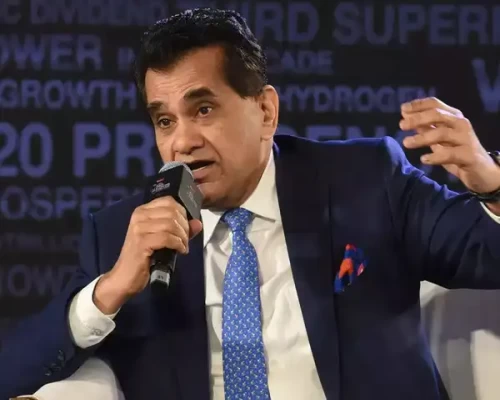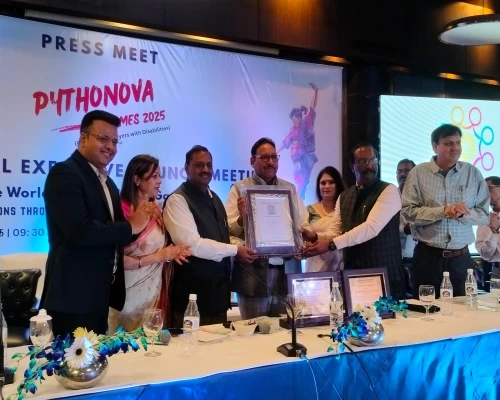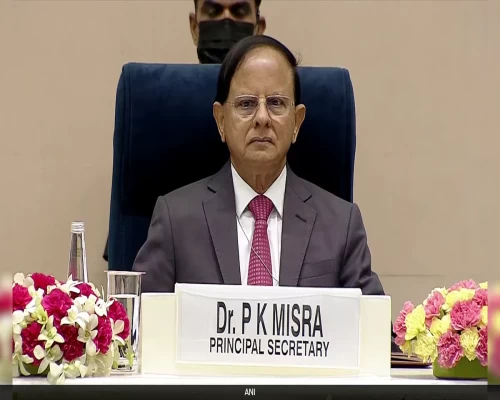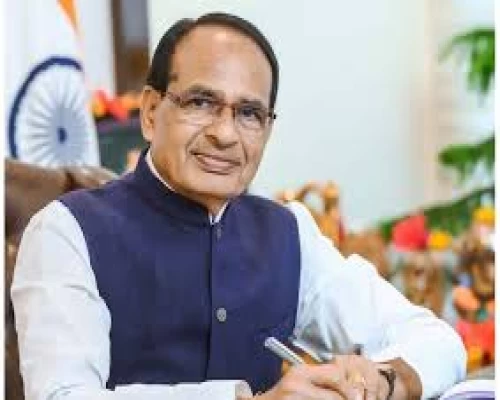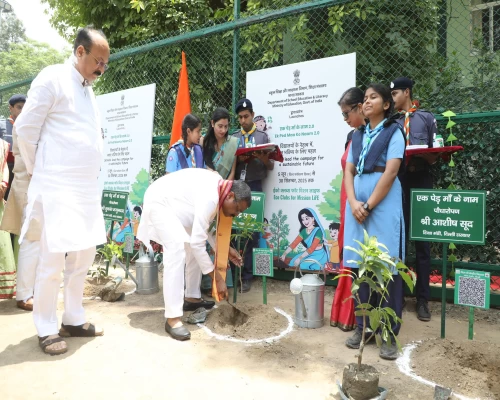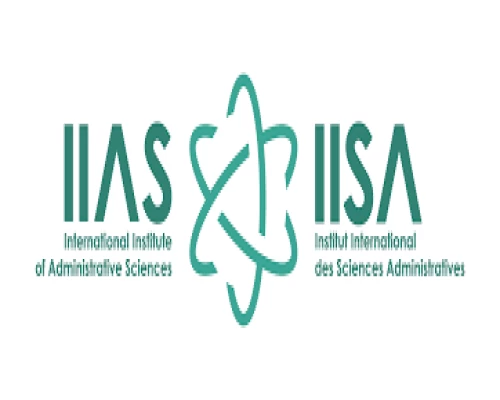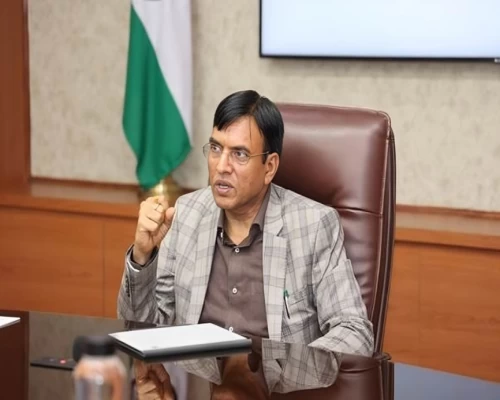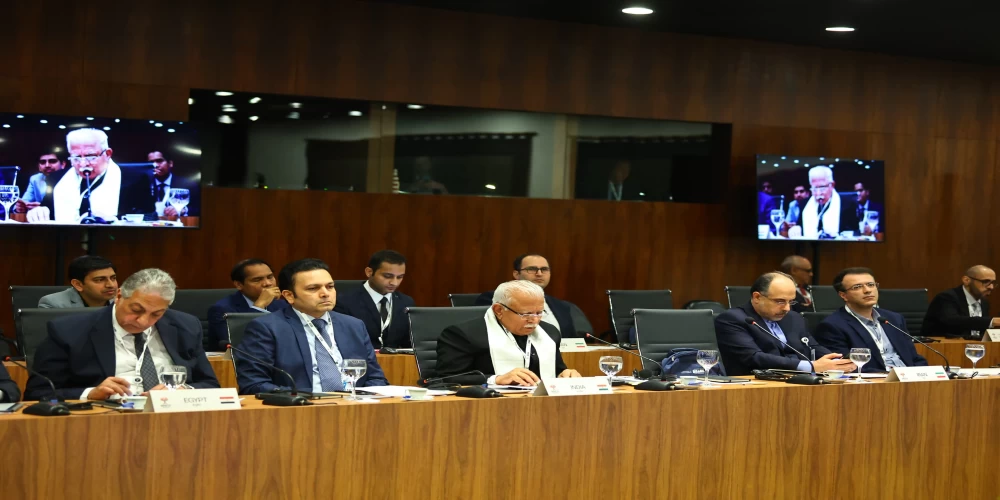
Delhi: India made a strong case for inclusive and sustainable energy governance at the BRICS Energy Ministers’ Meeting held in Brasília on 19 May. Leading the Indian delegation, Union Minister for Power and Housing and Urban Affairs Manohar Lal called for greater South-South cooperation, highlighted India's clean energy milestones, and extended an invitation to BRICS nations for the next energy gathering in 2026, to be hosted by India.
Speaking at the meeting convened under Brazil’s presidency, the Minister identified energy security as a major challenge and called for deeper BRICS collaboration to ensure economic stability, equitable access to energy, and sustainable development.
He acknowledged Brazil’s leadership on the theme, Strengthening Global South Cooperation for More Inclusive and Sustainable Governance, and reiterated India’s focus on building a future rooted in energy access, affordability and sustainability.
Manohar Lal detailed India’s clean energy progress, including a near doubling of electricity capacity over the past decade to 475 GW, with a target of 900 GW by 2032. He noted India has become the third-largest producer of solar and wind energy globally and is advancing rapidly towards its Nationally Determined Contributions (NDCs).
India has achieved a 20% ethanol blending milestone, invested in smart grids and advanced metering, and expanded transmission networks through initiatives like the Green Energy Corridor. Other key areas include plans for 100 GW of nuclear capacity by 2047, green hydrogen ambitions, and the launch of a domestic Carbon Credit Market.
He said, “Lupin’s partnership with Honeywell underscores our commitment to delivering high-quality medicines while working towards a healthier, more sustainable future for our patients and communities worldwide. By integrating Solstice Air in our products, we are not only enhancing patient care, but we are also significantly reducing environmental impact.”
He also said, “Solstice Air can play a critical role in ensuring that Lupin’s respiratory inhalers provide safe and effective treatment options that also leverage the latest advancements in technology to reduce harmful greenhouse gas emissions. By continuing to research and develop advanced technologies for reducing carbon, Honeywell is dedicated to driving innovation that enhances the efficacy of health solutions while pioneering emissions reducing practices that support industry advancements.”
Address at the #BRICS2025 Energy Ministerial Meet in Brasilia, where I highlighted India’s remarkable strides in the power sector & reaffirmed India’s commitment to equitable energy access with BRICS nations. @indiainbrazil pic.twitter.com/fa8DeVjoif
— Manohar Lal (@mlkhattar) May 20, 2025
Manohar Lal also spotlighted India’s initiatives for energy efficiency through programmes such as the Energy Conservation Sustainable Buildings Code, rooftop solar schemes, and improved appliance standards. On biofuels, he noted India’s leadership in the Global Biofuels Alliance and called for stronger collaboration in the sector.
While recognising the ongoing role of fossil fuels, particularly in the context of developing nations, he called for enhanced cooperation in cleaner technologies like coal gasification, carbon capture and storage, and green chemicals.
He concluded by inviting all BRICS nations to join the 2026 BRICS Energy Gathering in India, affirming the country's role in advancing the energy priorities of the Global South.
The meeting culminated in a joint communiqué that reflected shared concerns and goals. BRICS energy ministers committed to boosting energy security, tackling energy poverty, and advancing universal access under the UN’s Sustainable Development Goal 7.
The Ministers emphasised the need for fair and inclusive energy transitions, while acknowledging the principle of common but differentiated responsibilities and respective capabilities. They supported the use of local currencies in energy trade, backed open and non-discriminatory energy markets, and called for concessional finance to help developing nations transition more effectively.
The communiqué also welcomed the updated BRICS Roadmap for Energy Cooperation (2025–2030) and highlighted the role of the New Development Bank (NDB) in funding sustainable energy infrastructure through local currency financing.
Ministers reaffirmed the goal to double energy efficiency by 2030 and agreed on the importance of knowledge-sharing and mutual recognition of energy classifications and certifications.
With India set to assume the BRICS energy chairship in 2026, the meeting laid the groundwork for deeper collaboration on technology, finance, and policy across the Global South.
BI Bureau





